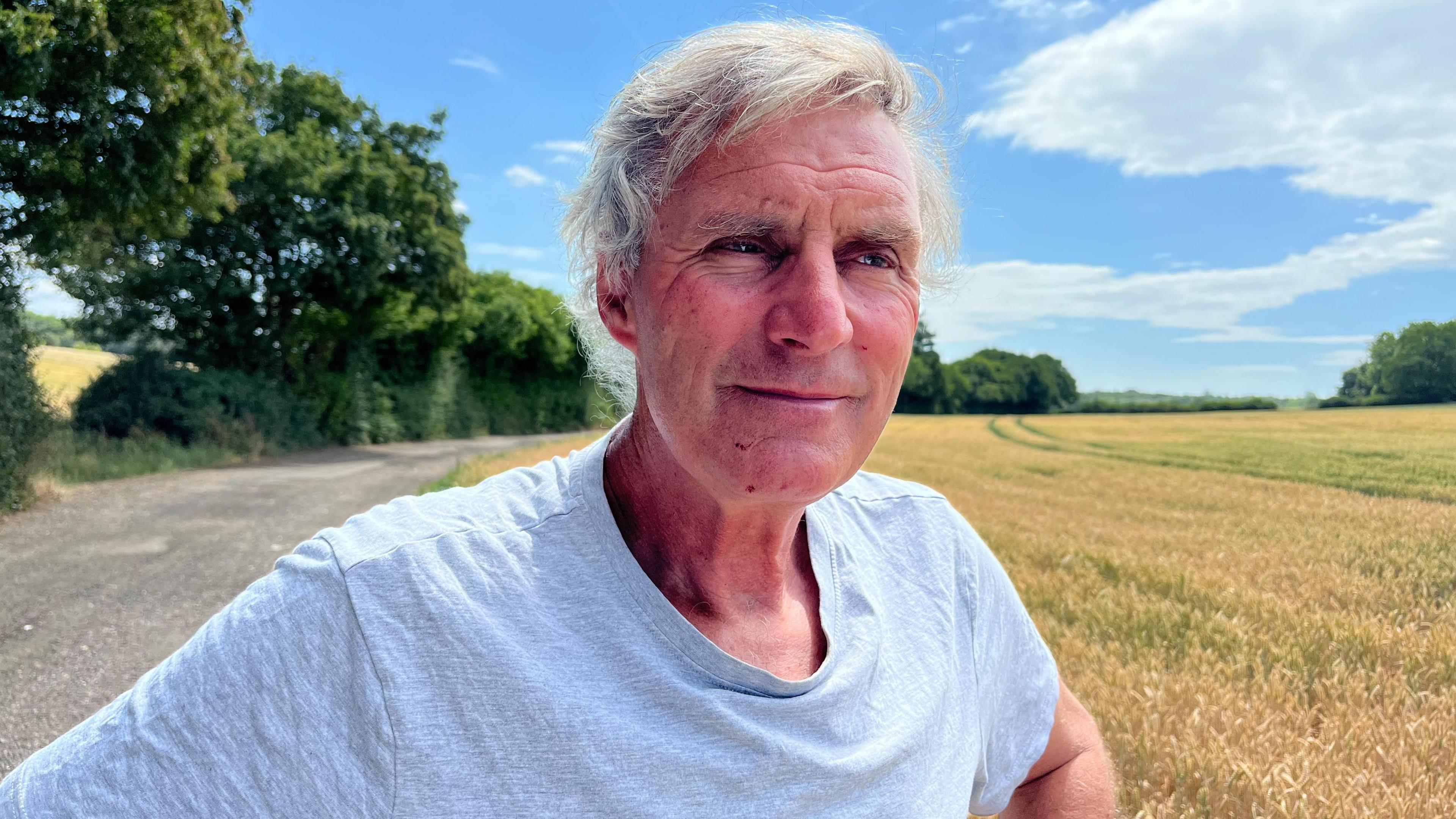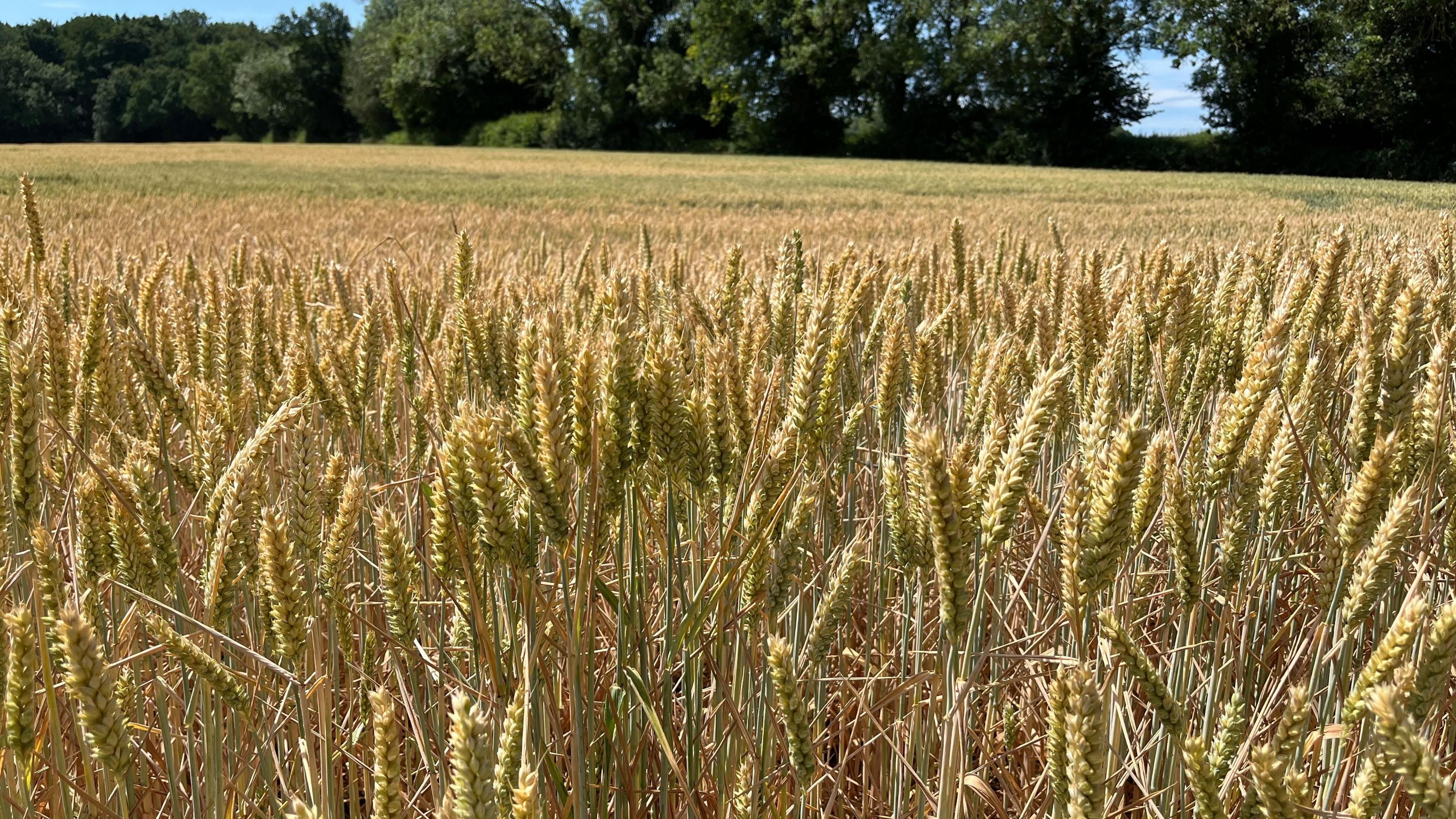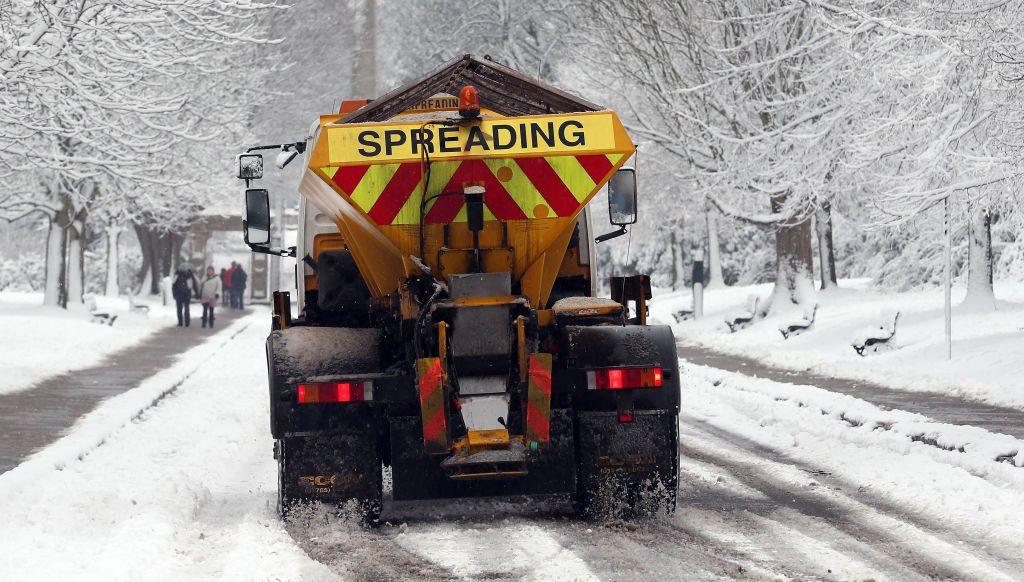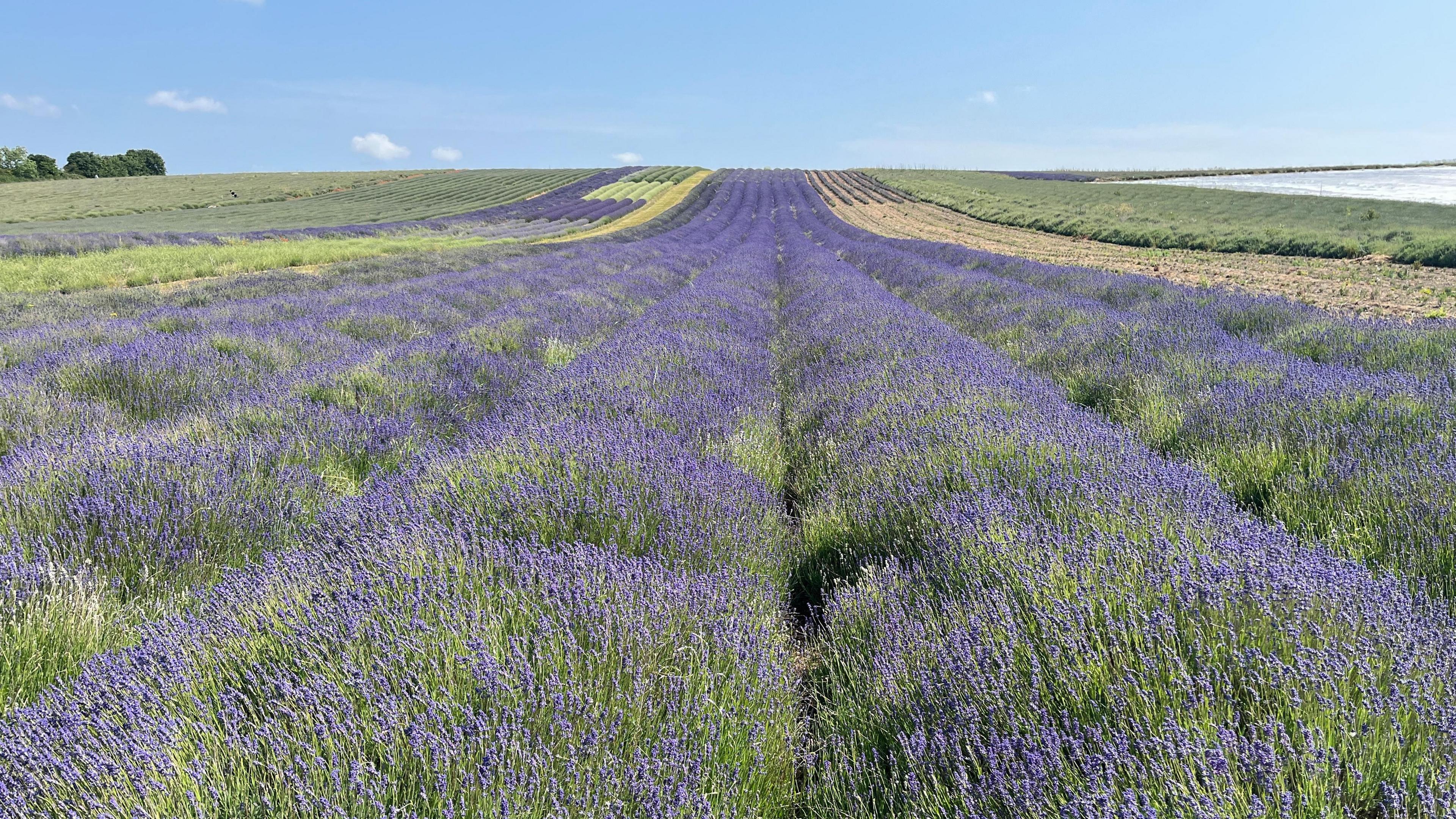Farmer worried weather has made wheat unprofitable

Will Dickinson said: "It's my duty to manage my farm in terms of mitigating what the climate can throw at me"
- Published
A wheat farmer is worried a recent run of dry weather could mean he makes a loss when he harvests his crop.
Will Dickinson, whose family farm is near St Albans in Hertfordshire, anticipates his yield to drop by between 10% and 25%.
A lack of rain in recent months has caused the soil to be less moist, leading to the plants dying.
He said: "We are looking at this moment at growing this crop and making a loss on it."
"The trouble with growing wheat at this particular point in time is that the price of wheat, which is an international commodity, is currently below the cost of production," the farmer continued.
Usually at this time of year the wheat crop is green, but the lack of rain has caused the majority of it to turn yellow and die.
The grain produced from this yellow plant will be shrivelled by harvest time, making it unusable to make products such as bread.
Some of the wheat remains green, but is at risk if the lack of rainfall continues.

The farm is expecting to incur a loss on its wheat crop
It is not just the recent heat causing problems for the farm - a run of wet weather at the start of the year meant the crop could not get its roots deep into the soil.
Like many farms, Mr Dickinson has used more resilient plants and organic fertilisers, to help the ground hold more moisture, but the changing climate is a continuous battle.
Scientists have said the recent regular spell of temperatures over 30C have been boosted by our warming climate. Climate change has made heatwaves stronger and more likely.
Mr Dickinson added: "I think as a farmer it's my duty to manage my farm in terms of mitigating what the climate can throw at me.
"We might have a wet year, we might have a dry year, we might have a cooler year, we might have a hotter year.
"What we try and do is grow a diversity of crops.
"We manage the way we cultivate those crops in different ways and therefore we can spread our resilience further."
Get in touch
Do you have a story suggestion for Beds, Herts & Bucks?
Follow Beds, Herts and Bucks news on BBC Sounds, Facebook, external, Instagram, external and X, external.
Related topics
- Published1 July

- Published30 June

- Published14 June
